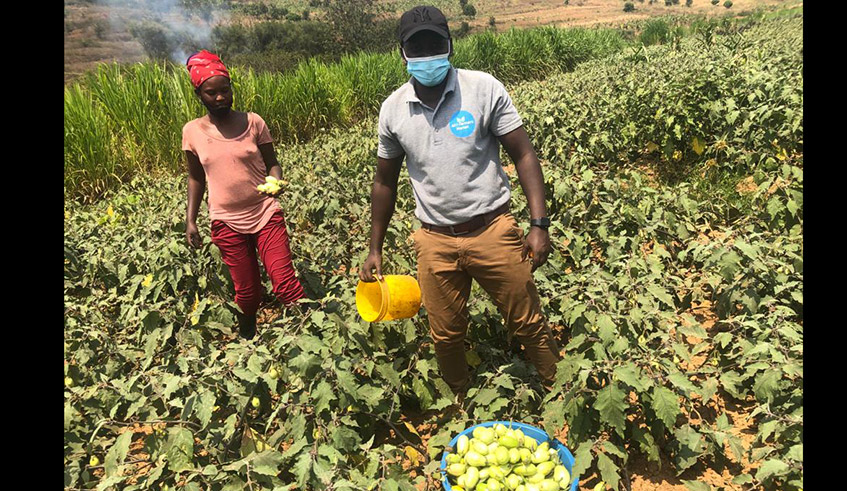

For many young fresh graduates, an offer of a white collar employment is a dream come true. It is a dream many relish the moment they join college.
This was not the case for Norman Mugisha, a well-travelled 28-old man who had a bevy of opportunities when he completed his Master’s degree at Tsinghua University in China.
For his bachelor’s degree, he had attended EARTH University in Costa Rica, where he studied agriculture.
After graduating for his masters, where he specialised in global affairs, job offers came knocking, he says; he had offers from private companies in China, in the US and in Rwanda.
"Many would tell me; how can you reject job offers abroad just to go into farming in the countryside? But I was driven by the passion I have for agriculture,” he revealed to The New Times.
Mugisha said that from day one he had a passion for agriculture because of its direct impact on people’s lives. So he wanted to play his role.


"After acquiring these degrees abroad, I had a puzzle to unlock. What good would it serve if I accepted job offers and stayed there? The conclusion I came to was that this was only going to benefit me alone and maybe my family.”
He added: "There is a saying that to whom much is given, much is expected. That’s why I also decided to take the difficult decision to be able to help other youth at home.”
After returning to Rwanda last year, Mugisha started Afri-Farmers Market, a social enterprise that helps local farmers practice sustainable agriculture and use e-commerce to sell their produce.
He also initiated a non-profits organisation called Young African Business Booster (YABB), which trains and facilitates youth to create their own sustainable agribusinesses.
So far more than 1,000 youth based in Eastern Province, mainly in Rwamagana District, are benefiting from the initiatives, according to Mugisha.
"I started these initiatives to contribute towards solving the many challenges that local farmers still face, like limited access to information, lack of stable market, unfair prices for their produce, poor methods of farming, lack of access to inputs, and climate change,” he added.
He, through the organisations, gives training to youth who want to engage in agriculture, sharing with them the skills on how they can do professional farming.
In addition to that, he links the farmers with the markets for their produce and also use his platform to network and share experience.
Odette Bayisenge, a resident of Musha Sector in Rwamagana, is one of the beneficiaries of Mugisha’s initiatives.
The vegetable grower told The New Times that together with her colleagues, they have formed small groups of youth farmers and they are helped to get the market for their harvest.
This helped them embrace professional agriculture unlike before when the only farming they did was for subsistence purposes.
"Many youths in our area are now joining agriculture after seeing how our life has changed over a short period of time. Through these small groups we are now able to save money, every one of us was given two pigs, and I personally own a small retail shop to supplement my income.”
Mugisha urged youth to change the poor mindset around agriculture which some of them think it is for the poor, uneducated people. He said that there are numerous opportunities in the sector which must be exploited.
"First of all, people must stop thinking of agriculture in the traditional way that our parents and those before them practiced it. We the youth must embrace innovation and this the only way we shall make our country food secure.”
Currently, he said, there are many challenges in the sector which the youth, especially those who have been able to go to school, can turn into opportunities.


